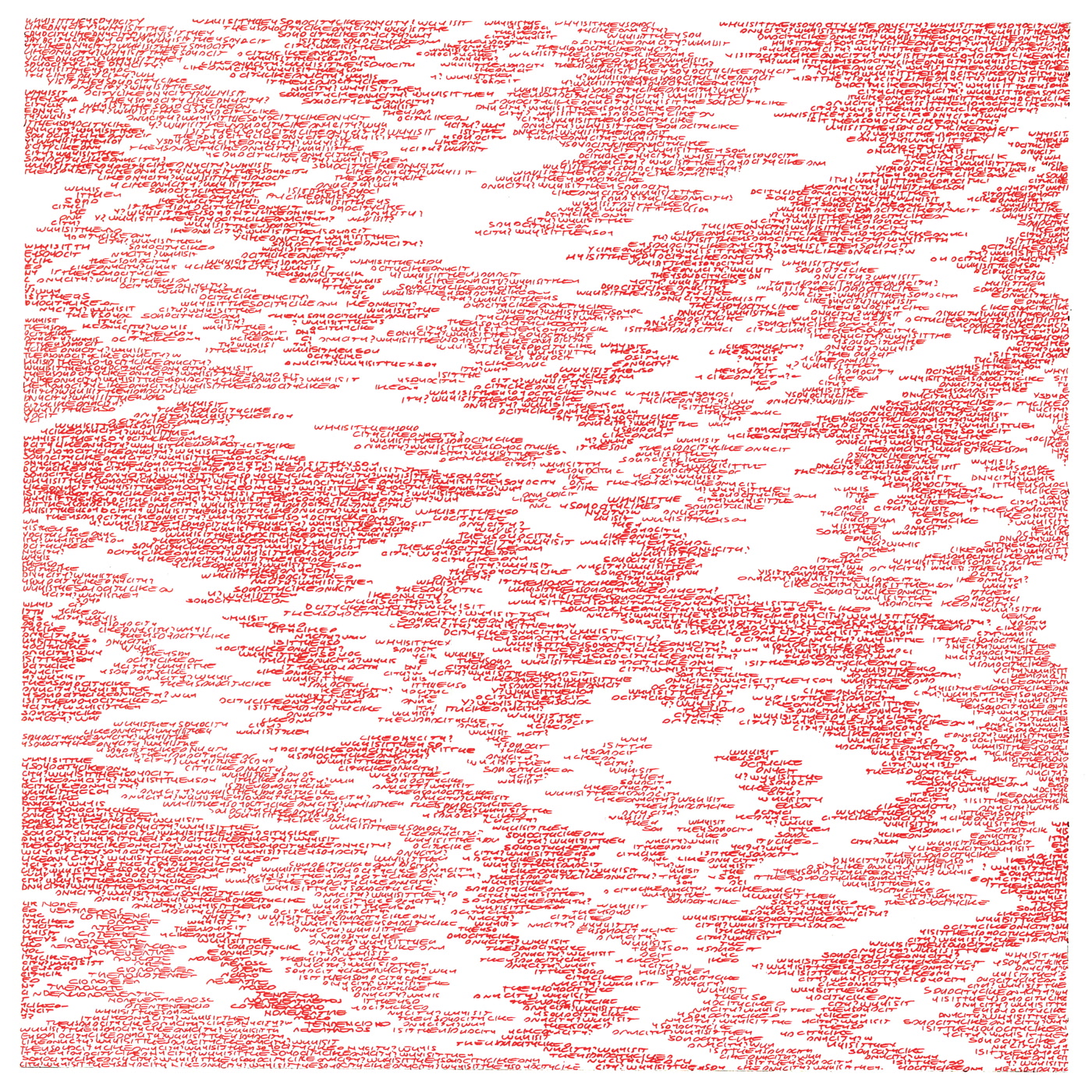- Digital
Ale Hop
Why Is It They Say A City Like Any City?
Karlrecords
- Cat No: KR087
- Release: 2022-02-04
- updated:
Track List
-
1. Ale Hop - The Mountain That Eats Men
08:24 -
2. Ale Hop - Mayu Islapi
06:25 -
3. Ale Hop - Latitud 0
04:39 -
4. Ale Hop - They Thought of Themselves
06:32 -
5. Ale Hop - Chiapas Y Phinaya
06:51 -
6. Ale Hop - Once Upon a Time
05:34
16bit/44.1khz [wav/flac/aiff/alac/mp3]
The new album by the Peruvian-born / Berlin-based experimental artist Ale Hop was
conceived in a context of immobility and provides six sonic vignettes that wonder about
location, circularity, rootedness and experience. In collaboration with Ana Quiroga,
Concepcion Huerta, Daniela Huerta, Elsa M'balla, Felicity Magan, Fil Uno, Ignacio Briceño,
KMRU, Manongo Mujica, Moises Horta, Nicole L'huillier, Raul Jardín, Sukitoa Onamau,
Tomas Tello.
Following her explorations on music's inherent fixation to geographic space and time, be it through
the longing of home ("Apophenia" 2019) or scientific magnification of invisible worlds ("The Life of
Insects" 2020), Berlin-based Peruvian-born experimental composer Ale Hop's fourth album, "Why
Is It They Say a City Like Any City?", was conceived in a context of immobility. During the lockdown
months, she started a process of remote collaboration, by sending messages, posted from various
cities along a South American trip, to thirteen musicians from around the world. She journaled her
impressions upon these places to an intimate fictional character while reflecting on matters of time,
sound, space, cosmology and colonial memory. The thirteen musicians dialogued with this voice by
taking upon the challenge of responding to the messages with sound collaborations.
Field recordings, mouth drumming, drone cellos, electronic loops, arrhythmic rhythms and voices
came back from this experiment. Ale assembled them, by layering, twisting and turning, into sonic
vignettes that wonder about location, circularity, rootedness and experience, making it the first time
she's set her guitar aside. Expect no answers to the album's title question, but an innermost
psychedelic rumination.
"Despite the technological resources that appear to dilute distances, the simulation of closeness
mirrored on the digital space is an emptied body, a state of precarity, a flat surface; unable to
withhold an experience of exchange," Ale states. "So, I began this project by asking myself, how
can we escape from the reduced experience of the virtual? The idea behind this experiment was
that my messages and the places they describe could drive the composition, be a catalyzer, a
score. Thus, to use geography as a tool to remember and imagine, to allow new soundscapes to
emerge."
"Memory, diffuse and divergent, sometimes reaches out to the future in its search for form, taking
shape from the reflections and echoes that come back … like throwing a rock in a pond and having
a rock thrown back at you."
Tracklist:
# The Mountain That Eats Men (collab. with Raul Jardín & Sukitoa o Namau)
# Mayu Islapi (collab. with Ana Quiroga, Fil Uno & Ignacio Briceño)
# Latitud 0 (collab. with Daniela Huerta & Manongo Mujica)
# They Thought of Themselves (collab. with Felicity Mangan & KMRU)
# Chiapas & Phinaya (collab. with Concepción Huerta & Tomas Tello)
# Once Upon a Time (collab. with Elsa M'Balla & Nicole L'Huillier)
conceived in a context of immobility and provides six sonic vignettes that wonder about
location, circularity, rootedness and experience. In collaboration with Ana Quiroga,
Concepcion Huerta, Daniela Huerta, Elsa M'balla, Felicity Magan, Fil Uno, Ignacio Briceño,
KMRU, Manongo Mujica, Moises Horta, Nicole L'huillier, Raul Jardín, Sukitoa Onamau,
Tomas Tello.
Following her explorations on music's inherent fixation to geographic space and time, be it through
the longing of home ("Apophenia" 2019) or scientific magnification of invisible worlds ("The Life of
Insects" 2020), Berlin-based Peruvian-born experimental composer Ale Hop's fourth album, "Why
Is It They Say a City Like Any City?", was conceived in a context of immobility. During the lockdown
months, she started a process of remote collaboration, by sending messages, posted from various
cities along a South American trip, to thirteen musicians from around the world. She journaled her
impressions upon these places to an intimate fictional character while reflecting on matters of time,
sound, space, cosmology and colonial memory. The thirteen musicians dialogued with this voice by
taking upon the challenge of responding to the messages with sound collaborations.
Field recordings, mouth drumming, drone cellos, electronic loops, arrhythmic rhythms and voices
came back from this experiment. Ale assembled them, by layering, twisting and turning, into sonic
vignettes that wonder about location, circularity, rootedness and experience, making it the first time
she's set her guitar aside. Expect no answers to the album's title question, but an innermost
psychedelic rumination.
"Despite the technological resources that appear to dilute distances, the simulation of closeness
mirrored on the digital space is an emptied body, a state of precarity, a flat surface; unable to
withhold an experience of exchange," Ale states. "So, I began this project by asking myself, how
can we escape from the reduced experience of the virtual? The idea behind this experiment was
that my messages and the places they describe could drive the composition, be a catalyzer, a
score. Thus, to use geography as a tool to remember and imagine, to allow new soundscapes to
emerge."
"Memory, diffuse and divergent, sometimes reaches out to the future in its search for form, taking
shape from the reflections and echoes that come back … like throwing a rock in a pond and having
a rock thrown back at you."
Tracklist:
# The Mountain That Eats Men (collab. with Raul Jardín & Sukitoa o Namau)
# Mayu Islapi (collab. with Ana Quiroga, Fil Uno & Ignacio Briceño)
# Latitud 0 (collab. with Daniela Huerta & Manongo Mujica)
# They Thought of Themselves (collab. with Felicity Mangan & KMRU)
# Chiapas & Phinaya (collab. with Concepción Huerta & Tomas Tello)
# Once Upon a Time (collab. with Elsa M'Balla & Nicole L'Huillier)



